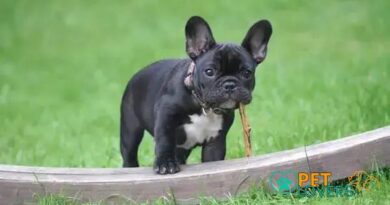What is Understanding Puppy Development
What is Understanding Puppy Development?
Understanding puppy development is crucial for any dog owner who wants to ensure their furry friend grows into a well-adjusted adult. This process encompasses various stages, each characterized by unique physical, emotional, and behavioral changes. By recognizing these stages, owners can provide appropriate care and training that aligns with their puppy’s developmental needs.
The Stages of Puppy Development
Puppy development can be divided into several key stages: neonatal, transitional, socialization, and juvenile. Each stage plays a vital role in shaping a puppy’s personality and behavior. The neonatal stage, which lasts from birth to about two weeks, is when puppies are entirely dependent on their mother. During this time, they begin to develop basic sensory functions.
Neonatal Stage: The First Two Weeks
During the neonatal stage, puppies are born blind and deaf, relying solely on their sense of touch and smell. This period is critical for bonding with their mother and littermates. Proper care during this stage is essential, as it sets the foundation for a puppy’s future development. Ensuring that the mother has a safe and comfortable environment is paramount for the puppies’ health and well-being.
Transitional Stage: Two to Four Weeks
The transitional stage, occurring between two to four weeks, marks the beginning of significant changes. Puppies start to open their eyes and ears, becoming more aware of their surroundings. This is also when they begin to explore their environment and engage in play with their littermates. Social interactions during this stage are crucial for developing important social skills.
Socialization Stage: Four to Twelve Weeks
The socialization stage is arguably the most critical period in a puppy’s life, occurring from four to twelve weeks. During this time, puppies should be exposed to a variety of people, animals, and environments. Positive experiences during this stage can help prevent behavioral issues later in life. Puppy classes and supervised playdates can be beneficial for socialization.
Juvenile Stage: Three to Six Months
The juvenile stage, which spans from three to six months, is when puppies begin to test boundaries and assert their independence. This period can be challenging for owners, as puppies may exhibit rebellious behavior. Consistent training and reinforcement of good behavior are essential during this time to help shape a well-mannered adult dog.
Importance of Early Training
Early training is a vital component of understanding puppy development. It not only helps establish a bond between the puppy and the owner but also lays the groundwork for future obedience. Positive reinforcement techniques, such as treats and praise, can be particularly effective in encouraging desired behaviors. Starting training early can lead to a more confident and well-adjusted adult dog.
Health Considerations During Development
Health considerations are also a critical aspect of understanding puppy development. Regular veterinary check-ups, vaccinations, and a balanced diet are essential for ensuring a puppy’s physical growth and development. Owners should be vigilant about any signs of illness or distress, as early intervention can prevent more serious health issues down the line.
Understanding Behavioral Changes
As puppies grow, they will experience various behavioral changes that can sometimes be confusing for owners. Understanding these changes is key to providing appropriate guidance and support. For instance, a puppy may become more energetic and playful during the juvenile stage, which can be mistaken for hyperactivity. Recognizing these developmental milestones can help owners respond effectively to their puppy’s needs.
The Role of Environment in Puppy Development
The environment plays a significant role in puppy development. A stimulating and safe environment can foster healthy growth and exploration. Conversely, a stressful or chaotic environment can lead to anxiety and behavioral issues. Owners should strive to create a nurturing space that encourages curiosity and learning, allowing their puppies to thrive during this critical period of development.



